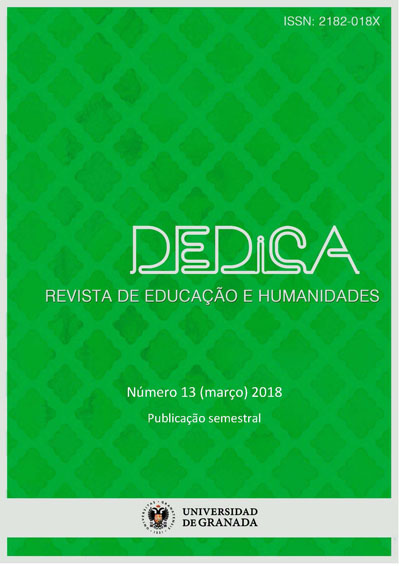Design, Education and Training. A transversal and situated vision
DOI:
https://doi.org/10.30827/dreh.v0i13.7246Keywords:
design, education, training, complexityAbstract
School is an identity in which learning, and knowledge reproduction should create an educational and formative culture that induces a renewed understanding of social daily life and is in line with the emergence of the complexities of our times.
Based on this assumption and the expectation of the school's position beyond its epistemological vocation, we defend a curricular vision that integrates ecological, aesthetic/ethical and civic references capable of declaring it as a center of knowledge, culture and leisure, in which the interdisciplinary paradigm determines learning and knowledge that contribute to alternative and qualified forms of social behavior.
In the study field of design, it is important to consider its mediating role in the acquisition of theoretical and practical competences applied to the physical, digital and social intercontext, that is, a strategic vision that does not reduce the design to the mere function or technical predetermination of the thing, but instead sets it as a didactic and pedagogical field of study in the clearer interpretation and understanding of the meanings and phenomena of the contemporary world - opposite to the globalizing tendency to reduce it to mere consuming and power "object".
It is within these views framework that education and training institutions in the areas of arts and technology, in which design stands, should broaden and promote the development of critical flexibility skills to build, rebuild and renew knowledge guided towards the reproduction of demonstrations of user-friendliness and social approach, with direct impact on the citizens’ educational and formative culture.
Downloads
References
Bürdek, B. (2011). História, teoria e prática do design de produtos. São Paulo: Edgard Blücher.
Cachapuz, A. et al (2004). Saberes básicos de todos os cidadãos no séc. XXI. Lisboa: Conselho Nacional de Educação – Ministério da Educação.
Flusser, V. (2010). Uma filosofia do design: a forma das coisas. Lisboa: Relógio d'Água.
Greene, M. (2005). Liberar la imaginación – ensayos sobre educación, arte y cambio social. Barcelona: Editorial GRAÓ.
Lidwell, et al (2011). Princípios universales de diseño. Barcelona: Blume.
Morin, E. (1999). Os sete saberes para a educação do futuro. Lisboa: Instituto Piaget.
Norman, D. (2004). Emotional Design. New York: Basic Books.
Paiva, B. (2009). Urbanidade e Educação Cultural - Supervisão e Formação em Educação Artística e Tecnológica. Penafiel: Editorial Novembro.
Sá-Chaves, I. (Org.) (2014). Educar, Investigar e Formar – Novos Saberes. Aveiro: Universidade de Aveiro.
Sá-Chaves, I. (2011). Formação, conhecimento e supervisão: contributos nas áreas de formação de professores e outros profissionais (3.ª ed.). Aveiro: Universidade de Aveiro.
Schön, D. A. (1992). Formar professores como profissionais reflexivos. In Nóvoa, A. (Coord.). Os professores e a sua formação. Lisboa : Edições Dom Quixote, pp. 77-91.












